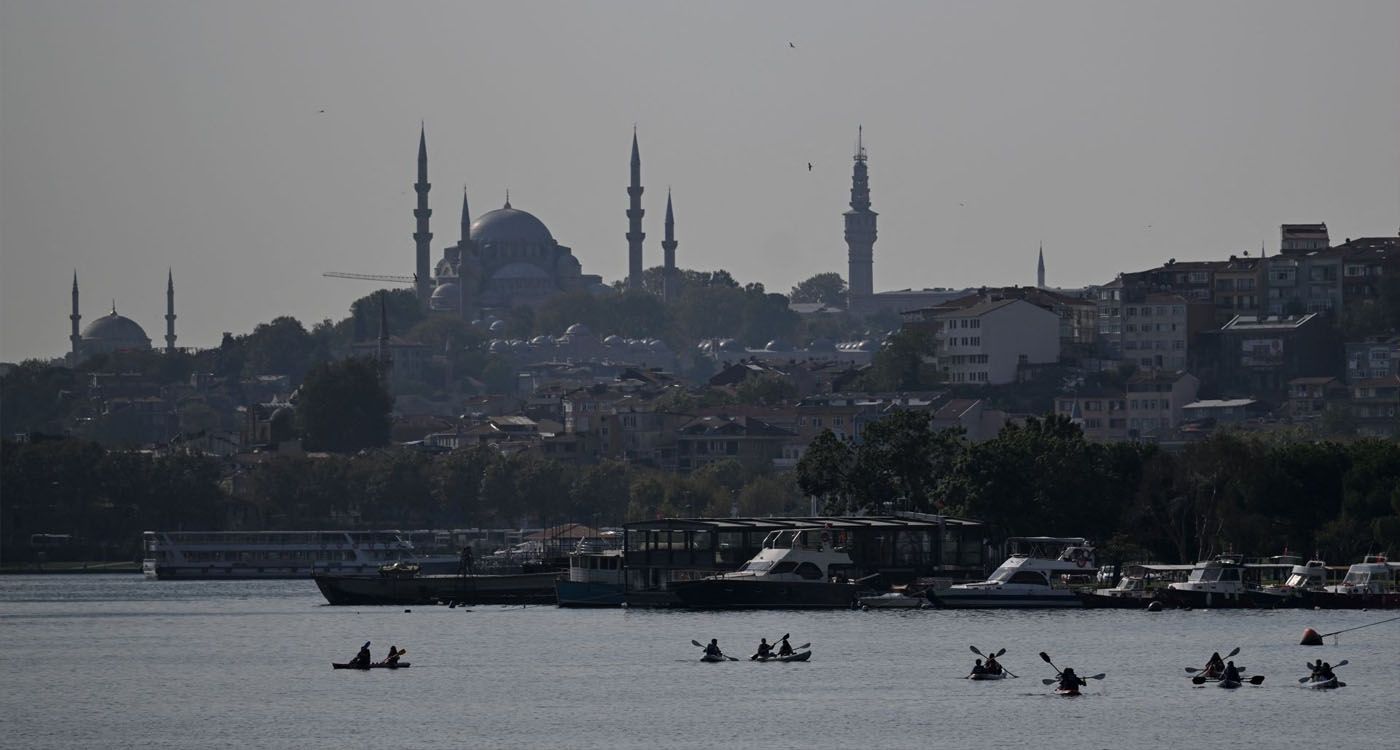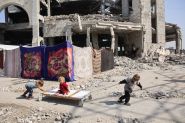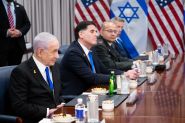- Home
- Middle East
- Ankara, Another Tehran?

People row on the cove of the Golden Horn, with the Süleymaniye mosque in the background, in Istanbul, on September 11, 2025. ©Ozan Kose/AFP
The Middle East is going through a major realignment. Iran, long at the center of regional tensions, is losing influence after years of proxy wars and direct confrontations with Israel.
This decline does not mean the situation is easing. On the contrary, it creates a strategic opening that another player – Recep Tayyip Erdoğan’s Turkey – is now stepping in to fill.
Through military operations in Libya, Syria and Somalia, an assertive maritime approach in the Eastern Mediterranean, and a diplomacy that straddles the North Atlantic Treaty Organization (NATO) and its rivals, Ankara seems to be adopting methods reminiscent of Tehran.
From Islamic Nationalism to Regional Ambitions
According to the American think tank The Washington Institute, Erdoğan has adopted the authoritarian methods of Mustafa Kemal (Atatürk), the founder of the Turkish Republic, but applies them to an Islamist and conservative agenda: “Erdoğan now has the same levers of power, but he does not share Atatürk’s values. He aims for a society oriented toward the Middle East, politically Islamist and socially conservative.”
The think tank also notes that Erdoğan relies on the networks of the Muslim Brotherhood as a lever of influence. The Turkish president sees the Brotherhood as a way to extend his reach, which explains why he supports Hamas, the Palestinian branch of the organization.
The ‘Blue Homeland’ Strategy
The Foundation for Defense of Democracies (FDD), another American think tank, notes that Libya served as the testing ground for this geopolitical shift. In 2019, Ankara backed the Tripoli government in exchange for a disputed maritime agreement, which significantly expanded Turkey’s claims in the Mediterranean, challenging Greece’s internationally recognized maritime borders.
These moves are part of the “Mavi Vatan” (“Blue Homeland”) doctrine, a concept developed by Turkish officers that asserts for Ankara a maritime zone of over 460,000 km² in the Eastern Mediterranean, the Aegean and the Black Sea.
It provides the rationale for an aggressive naval strategy, combining gas exploration, military presence and pressure-based diplomacy. For Athens and Nicosia, the doctrine is seen as the maritime counterpart to Iran’s expansionism in the Levant.
A Worrying Display
According to the FDD, the militarization of Northern Cyprus highlights this expansion: “Since 2021, Turkey has deployed armed drones (Akinci, Bayraktar) and stationed ATMACA anti-ship missiles.” With a range of over 200 km, these missiles pose “a direct threat to Israel’s offshore energy assets.”
The FDD also points out that Turkey is leveraging its military base in Somalia, its largest beyond national borders: “This base could serve as a springboard for operations or missile deployments targeting Israeli urban centers.”
Syria, a Shift in Influence
Syria is a key arena for understanding Turkey’s rising influence. After Bashar al-Assad’s fall in December 2024, the FDD notes that Erdoğan sees Ahmad al-Sharaa as a compliant proxy leader and is already working to rebuild the Syrian army under Turkish guidance, while highlighting that more than 20,000 Turkish troops remain deployed in the country.
Israel views it as a clear attempt to replace Iran as Syria’s main patron. This ambition became evident in April, when the Israeli air force struck a site in Palmyra just before the arrival of Turkish forces. For Tel Aviv, Turkey is not merely an opportunistic neighbor but a strategic rival seeking to establish a lasting presence in a space Tehran once dominated.
Moreover, Ankara has long supported jihadist groups in Syria, including Hay’at Tahrir al-Sham (HTS). According to the FDD, “Throughout the civil war, Erdoğan strengthened militias linked to al-Qaeda under the banner of the Syrian National Army.” Today, these militias form the core of the new Syrian security apparatus, increasing Damascus’s dependence on Ankara.
Ambiguous Diplomacy and the Lure of the BRICS
According to the American think tank Atlantic Council, Turkey’s uniqueness lies in a “strategic and balanced ambiguity,” engaging simultaneously with Russia, NATO, Ukraine and Iran.
But this stance has its limits. The US outlet Long War Journal, affiliated with the FDD, notes that “Turkey has renewed its interest in joining the BRICS and faced another rejection.” Even more striking, the journal adds, “Turkey holds Russian S-400s while requesting American F-35s and F-16s.”
The FDD stresses that Turkey is not a harmless actor pursuing peace, but a revisionist power capitalizing on instability.
However, the Atlantic Council points out that Ankara’s ability to mediate still holds real value in a fragmented system.
Ankara is not a replica of Tehran, but it adopts some of the same methods – military projection, backing Islamist players and defying the West – while remaining a NATO member and preserving diplomatic flexibility. This mix may make Turkey more unpredictable, and potentially harder to contain than Iran.
Read more




Comments